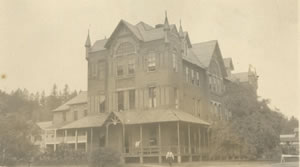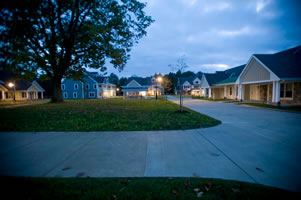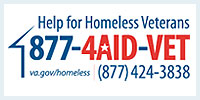Domiciliary Care for Homeless Veterans Program
 The Domiciliary Care Program is the Department of Veterans Affairs (VA) oldest health care program. Established through legislation passed in the late 1860's, the Domiciliary's purpose was to provide a home for disabled volunteer soldiers of the Civil War. Domiciliary care was initially established to provide services to economically-disadvantaged Veterans, and it remains committed to serving that group. The Domiciliary has evolved from a "Soldiers' Home" to become an active clinical rehabilitation and treatment program for male and female Veterans and domiciliary programs are is now integrated with the Mental Health Residential Rehabilitation and Treatment Programs (MH RRTPs).
The Domiciliary Care Program is the Department of Veterans Affairs (VA) oldest health care program. Established through legislation passed in the late 1860's, the Domiciliary's purpose was to provide a home for disabled volunteer soldiers of the Civil War. Domiciliary care was initially established to provide services to economically-disadvantaged Veterans, and it remains committed to serving that group. The Domiciliary has evolved from a "Soldiers' Home" to become an active clinical rehabilitation and treatment program for male and female Veterans and domiciliary programs are is now integrated with the Mental Health Residential Rehabilitation and Treatment Programs (MH RRTPs).
 The MH RRTPs are designed to provide state-of-the-art, high-quality residential rehabilitation and treatment services for Veterans with multiple and severe medical conditions, mental illness, addiction, or psychosocial deficits. The MH RRTP identifies and addresses goals of rehabilitation, recovery, health maintenance, improved quality of life, and community integration in addition to specific treatment of medical conditions, mental illnesses, addictive disorders, and homelessness. The residential component emphasizes incorporation of clinical treatment gains into a lifestyle of self-care and personal responsibility. Treatment intensity, environmental structures, milieu, and type of supervision vary based on population served, and need to be relevant to the diversity of the population, e.g., age, ethnicity, and culture.
The MH RRTPs are designed to provide state-of-the-art, high-quality residential rehabilitation and treatment services for Veterans with multiple and severe medical conditions, mental illness, addiction, or psychosocial deficits. The MH RRTP identifies and addresses goals of rehabilitation, recovery, health maintenance, improved quality of life, and community integration in addition to specific treatment of medical conditions, mental illnesses, addictive disorders, and homelessness. The residential component emphasizes incorporation of clinical treatment gains into a lifestyle of self-care and personal responsibility. Treatment intensity, environmental structures, milieu, and type of supervision vary based on population served, and need to be relevant to the diversity of the population, e.g., age, ethnicity, and culture.
Contact Information
Jamie Ploppert, National Director, MH RRTP, 757-722-9961 ext 1123
Jennifer Burden, Deputy Director, MH RRTP, 540-982-2463 ext. 3739
Camilla Doctor, Program Specialist, MH RRTP, 757-722-9961 ext 3624











